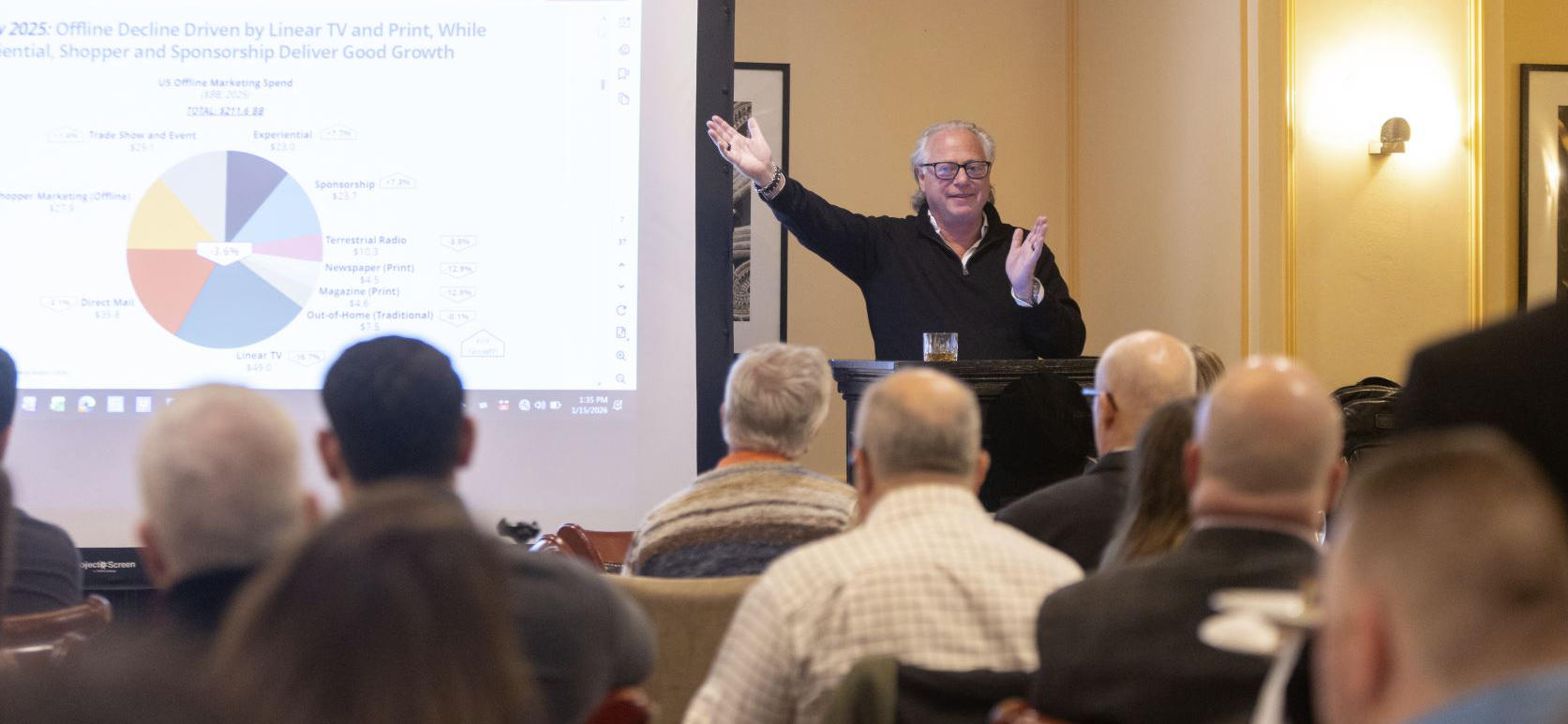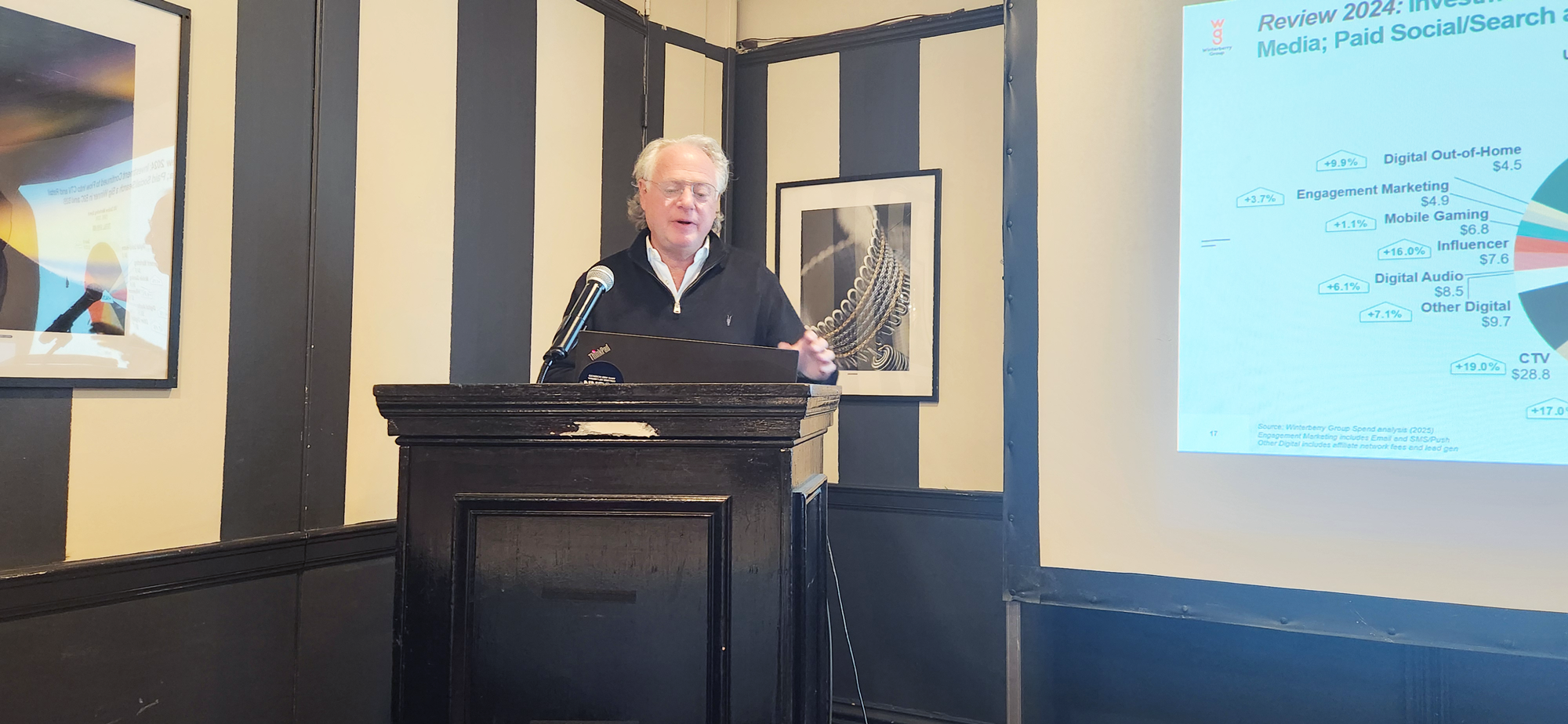
CMO tenure is taking another hit. There are the various estimates that the tenure of the CMO is dropping, on average, back to about 18 month. And there’s also this show stopper: According to Forrester Research, about 30% of CEOs polled are planning to fire their CMOs in 2017 for lacking the skills needed for digital transformation.
What exactly are the skills that CMOs need to drive digital transformation not only within marketing, but also across the broader organization? We queried
several industry insiders for their advice on the subject.
Here, their recommendations for the skills CMOs need to acquire or hone first and foremost to succeed at digital transformation.
Ryan Phelan, VP of Marketing Insights
Adestra
Any business that isn’t focused on digital transformation should fire its CMO, because that CMO is ignoring the rate and pace of change.
Maybe the executive is scared to admit that he or she doesn’t know what digital transformation is or how to get there. That’s no excuse. To someone in that position, I say humble yourself and admit, “I don’t know what I don’t know.” Then, ask for help. It doesn’t make you look ignorant. It makes you inquisitive.
We all have someone we seek out when we need guidance. Forrester, for example, has a staff full of analysts who are there to answer CMOs questions. Along with hiring savvy consultants, CMOs have plenty of studies and research they can use to educate themselves. And they can reach out to people in their organization and to vendors who can tell them what’s right and wrong and recommend what they should do.
Launch Roundup – Get Skilled.pdf
Click to download the full PDF.
Consider this example: One of the most common conversations I have with senior marketing execs is, “Can’t we just buy a list?” Most email marketers will say, “No!” right away. But executives who don’t deal with the ins and outs of email every day might be hard-pressed to admit they don’t know the answer.
It’s humbling to say “I don’t know.” But it’s better to say that, and to educate yourself, than to get canned for not doing your job.
George Wiedemann, CEO
unified.agency
It is not easy to be a CMO these days. In many companies the role is morphing to CRO, Chief Revenue Officer, meaning the burden of generating top-line growth is shared with sales. Also, CMOs are challenged mightily by the disruption of martech and the migration of consumer eyeballs to digital devices. The customer journey has become complex, resulting in a fractured experience for many brands.
So, how does a CMO tackle the digital challenges?
First, CMOs need the skills and resources to understand customers and prospects using big data and analytics, as well as to measure and optimize spend across the customer journey.
Second, CMOs need the ability to understand the roles all the new digital channels that touch the customer play during the journey, and where silos can hinder that journey. They need to combine that with skills to perform in those specialized channels across the journey or to hire the right people who have those skills.
Third, CMOs need the understanding and resources not to succumb to middle metrics, such as cost per click. Instead, they need to optimize spend using final metrics, such a cost per account or cost per sale. There is mounting evidence that too much of a focus on middle metrics can sub-optimize final brand metrics.
Last, CMOs need to voice the brand character clearly to ensure that creative communications are consistent and of high quality across this complex offline and digital landscape of prospect and customer contact.
Jay Friedman, COO of programmatic services
Goodway Group
First and foremost, CMOs need to define clear KPIs with their CEO and board, so that when those KPIs are met, the CMO isn’t fired.
It’s distressing to hear a number like Forbes’ finding for two reasons: 1. The CMO is just getting ramped up and integrated into the organization in a meaningful way when they’re halfway through their tenure; 2. It shows that CEOs are no better at knowing what they want out of their CMOs than the CMOs are at delivering the right performance.
CMOs do not need to be digital experts. CMOs don’t need to know the benefits of one content management system over another or how header bidding is impacting auction mechanisms within the programmatic ecosystem.
The most important competency a CMO can have is the ability to build brilliant, functional teams. CMOs need experts in every area of marketing, not just digital.
The second competency CMOs then need to have is commonly referred to as “mapping.” CMOs need to be able to take disparate concepts from all areas of their team and map them together to create a bigger picture and long-term vision for the work that needs to be done.
While there are dozens of competencies and skills a CMO should have, mapping is often the one that will lead to their downfall. Being able to link SEO, UI/UX, PPC, programmatic, mobile, social, and video—and that’s just digital—to all other areas of marketing will keep a CMO in good graces longer than most other skills commonly thought needed.
Kathy Menis, SVP of Marketing
Signal
To meet the demands of the digital age, CMOs must master data and technology to resolve customer identity, the foundation for delivering one-to-one engagements that will retain customers and drive business growth.
Consider the way consumers interact with brands today: They’re always-on, constantly moving between touchpoints based on their needs at the moment. What’s more, they demand that these interactions be personalized at every step—but because of an often-siloed marketing organization and fragmented technologies that don’t work together, this is incredibly challenging for CMOs to contend with.
Identity solves this challenge by providing a connective tissue that links all interactions. Forrester analyst Joe Stanhope explains: “For customer-obsessed marketers, customer recognition in single channels isn’t enough; identity resolution spans every interaction and provides a broad view of the customer, creating the strategic foundation for cross-channel marketing.”
Successful CMOs will tackle identity resolution in 2017 across all touchpoints—from website to mobile to call centers to stores. This will give these chief marketers the information to improve customer relationships and build loyalty by anticipating their needs and delighting them at every stage of the journey.
John Derham, Head of Innovation and Cofounder
IQ Media
The skills of the CMO in 2017 need to expand outside those of the traditional marketer into broader skills related to the goals of the company. This means that the CMO needs to deeply understand the constraints of their organizations’ financial models with respect to capital consumption and true ROI hurdles, and not simply deploy CPM and market share models. Digital strategies will continue to evolve as champion/challenger methods and cross-channel programs proliferate—and the value-oriented CMO will need to be able to test and measure various elements of these strategies to arrive at the most promising plan for their business.
To produce the best practices moving forward, CMOs must expand their background in creative development and messaging in conjunction with an understanding of statistical inference between populations, products, and channels. This is a multivariate approach to marketing, so the CMOs who adopt it need to implement testing methods to understand which combinations of creative and product, or creative and populations, or creative and channel will resonate. In reality, all four factors need to be combined.
Last, CMOs should factor broader perspectives of operational constraints into targeting and implementation methodologies.
This is the last step in developing a successful marketing strategy, as planning and operations will facilitate efficiency, or will be
a costly oversight.
Ultimately, today’s CMOs need to be as integrated and programmatic as the digital strategies they promote.
Patrick Hopf, President and Cofounder
SourceKnowledge
Simply put: CMOs need to hone their data-driven decision-making skills.
CMOs today must use data to make decisions around strategy, campaign, channel optimization, and even creative. They should measure all aspects of marketing against KPIs directly correlated with performance. It’s critical that CMOS stop relying on television era metrics such as affinity, perception, and engagement. Even some digital metrics are outdated at this point. Click-through rate, unique impressions, and completion rate rarely provide valuable insight into a campaign’s performance. Instead, CMOs should be monitoring k-factor, conversion rate, average order value, order frequency, churn rate, and lifetime value—all
of which are strong indicators of positive outcomes.
It’s also the responsibility of the CMO to get their entire organization excited about using data. CMOs should strive to make analytics accessible for their entire organization with training programs, transparency into campaign performance, and by selecting advertising platforms that offer easy-to-understand reporting.
Evangelizing data-driven decisions internally and ensuring that the entire organization has access to actionable data creates a shift in mentality and allows team members at every level to see the impact of their work, which is invaluable to organizational success.
David Johnson, Director of Product Marketing
Oracle Marketing Cloud
Of all the qualities that build up to making a great CMO, adaptability ranks at the top. The capability of a leader to adapt effectively and efficiently echoes above any of their other qualities, and can either make those qualities stronger or weaker depending on the CMO’s ability to adapt. A great CMO needs to be able to adjust to continually evolving conditions, whether
it’s the changing workforce, business landscape, or technology.
Plus, adaptability in leadership can trickle down and create an agile culture that provides a competitive advantage.
Embracing change, whether good or bad, is essential to strong leadership. As technology continues to expand, it cultivates new ways of buying, as well as provides marketers the ability to deliver new brand experiences. CMOs need to be able to foresee and respond to the constant evolution of the buyer, the business landscape, and technology.
As Max McKeown stated, ‘Adaptability is about the powerful difference between adapting to cope and adapting to win.’ The CMOs who win will be the ones who are agile and ready to handle the challenges that today’s marketing landscape disruption may bring them.
Megan McKenna, VP of Marketing
Lotame
CMOs will need to become data experts to succeed today. Leveraging data will continue to be of vital importance as digital marketers aim to be more efficient and effective with their campaigns and ad spend.
Many marketers still need to come around and realize the exceptional value data can bring to optimizing campaigns. Successful CMOs understand how to foster a team and use technology to help collect, organize, activate, and become more creative with their use of data. This will be the only way to truly stand apart.
Beyond using data for advertising and campaign targeting, CMOs should be aware of the variety of applications for data that they may be overlooking to help optimize marketing performance. Chief marketers can encourage and implement using data for cross-device activation, sequential messaging, audience insights, content and experience personalization, attribution and data unification, among many others.
With the myriad digital and offline touchpoints now available to marketers, omni-channel marketing, and uncovering a holistic view of those touchpoints, has become even more difficult. Embracing data will help to remove some of the complexity.
Or Eliezer Shani, CEO
Adgorithms
CMOs should be focused on the brand, growing the business, and customer relationships, not on how a digital marketing campaign works inside and out. And with the help of AI for marketing, CMOs can worry less about having digital acumen. Yes, they need to know some basics about AI Marketing tools. But they can let those tools do all the heavy lifting while delivering better than incremental results.
CMOs who understand and adopt AI can get back to focusing on what they should be doing most: building out strategy and using storytelling to deliver unique creative and messaging that resonates with each and every individual customer and consumer.

About the Author
Ginger Conlon, chief editor and marketing alchemist at MKTGinsight, catalyzes change in marketing organizations. She is a frequent speaker on marketing and customer experience, and serves in advisory or leadership roles for several industry organizations. Ginger was honored with a Silver Apple lifetime achievement award for her contributions to the marketing industry.
Find her at @customeralchemy and on LinkedIn.








